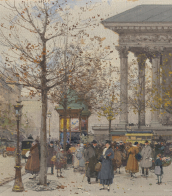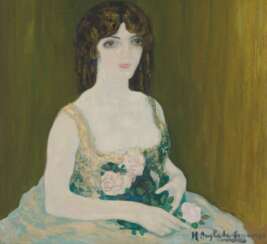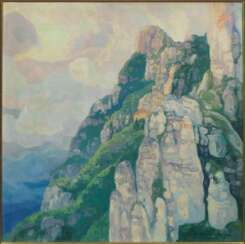Hermenegildo Anglada Camarasa (1871 - 1959) — Auction price
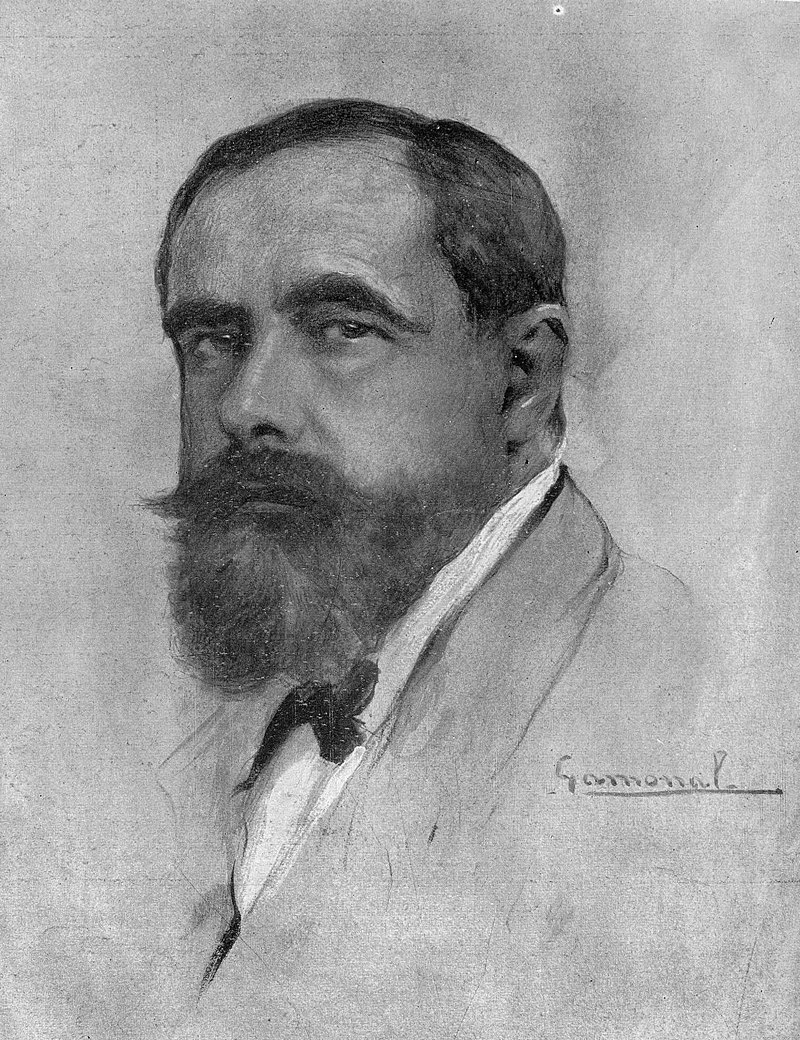
Hermenegildo Anglada Camarasa was a Spanish painter.
Camarasa studied at the Llotja de Barcelona School of Fine Arts under Modeste Urgel, whose work influenced his first landscapes. He moved to Paris in 1894, studying at the Académie Julian and the Académie Colarossi. His colorful style of painting shows a strong Oriental and Arabic influence, and his decorative style is associated with the work of Gustav Klimt.
In the early 1990s, Camarasa opened a painting school attended by many students, including Marie Blanchard. He was one of the founders of the Autumn Salons of Paris and was associated with the artists of the Vienna Secession. Camarasa's works from these years, depicting nighttime street scenes, Parisian cabarets and music halls, attracted the attention of Pablo Picasso, who had recently arrived in Montmartre; he even painted a profile portrait of Anglade.
In 1901 Camarasa took part in an international exhibition in Dresden, where he was a great success. He subsequently exhibited all over the world and was awarded gold medals in Venice (1907) and Buenos Aires (1910). During the war years 1939-1947 the artist lived in exile in France.
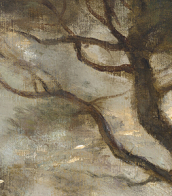

Hermenegildo Anglada Camarasa was a Spanish painter.
Camarasa studied at the Llotja de Barcelona School of Fine Arts under Modeste Urgel, whose work influenced his first landscapes. He moved to Paris in 1894, studying at the Académie Julian and the Académie Colarossi. His colorful style of painting shows a strong Oriental and Arabic influence, and his decorative style is associated with the work of Gustav Klimt.
In the early 1990s, Camarasa opened a painting school attended by many students, including Marie Blanchard. He was one of the founders of the Autumn Salons of Paris and was associated with the artists of the Vienna Secession. Camarasa's works from these years, depicting nighttime street scenes, Parisian cabarets and music halls, attracted the attention of Pablo Picasso, who had recently arrived in Montmartre; he even painted a profile portrait of Anglade.
In 1901 Camarasa took part in an international exhibition in Dresden, where he was a great success. He subsequently exhibited all over the world and was awarded gold medals in Venice (1907) and Buenos Aires (1910). During the war years 1939-1947 the artist lived in exile in France.
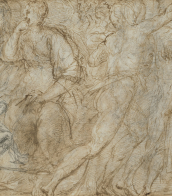

Hermenegildo Anglada Camarasa was a Spanish painter.
Camarasa studied at the Llotja de Barcelona School of Fine Arts under Modeste Urgel, whose work influenced his first landscapes. He moved to Paris in 1894, studying at the Académie Julian and the Académie Colarossi. His colorful style of painting shows a strong Oriental and Arabic influence, and his decorative style is associated with the work of Gustav Klimt.
In the early 1990s, Camarasa opened a painting school attended by many students, including Marie Blanchard. He was one of the founders of the Autumn Salons of Paris and was associated with the artists of the Vienna Secession. Camarasa's works from these years, depicting nighttime street scenes, Parisian cabarets and music halls, attracted the attention of Pablo Picasso, who had recently arrived in Montmartre; he even painted a profile portrait of Anglade.
In 1901 Camarasa took part in an international exhibition in Dresden, where he was a great success. He subsequently exhibited all over the world and was awarded gold medals in Venice (1907) and Buenos Aires (1910). During the war years 1939-1947 the artist lived in exile in France.
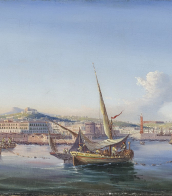

Hermenegildo Anglada Camarasa was a Spanish painter.
Camarasa studied at the Llotja de Barcelona School of Fine Arts under Modeste Urgel, whose work influenced his first landscapes. He moved to Paris in 1894, studying at the Académie Julian and the Académie Colarossi. His colorful style of painting shows a strong Oriental and Arabic influence, and his decorative style is associated with the work of Gustav Klimt.
In the early 1990s, Camarasa opened a painting school attended by many students, including Marie Blanchard. He was one of the founders of the Autumn Salons of Paris and was associated with the artists of the Vienna Secession. Camarasa's works from these years, depicting nighttime street scenes, Parisian cabarets and music halls, attracted the attention of Pablo Picasso, who had recently arrived in Montmartre; he even painted a profile portrait of Anglade.
In 1901 Camarasa took part in an international exhibition in Dresden, where he was a great success. He subsequently exhibited all over the world and was awarded gold medals in Venice (1907) and Buenos Aires (1910). During the war years 1939-1947 the artist lived in exile in France.
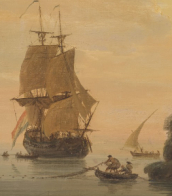

Hermenegildo Anglada Camarasa was a Spanish painter.
Camarasa studied at the Llotja de Barcelona School of Fine Arts under Modeste Urgel, whose work influenced his first landscapes. He moved to Paris in 1894, studying at the Académie Julian and the Académie Colarossi. His colorful style of painting shows a strong Oriental and Arabic influence, and his decorative style is associated with the work of Gustav Klimt.
In the early 1990s, Camarasa opened a painting school attended by many students, including Marie Blanchard. He was one of the founders of the Autumn Salons of Paris and was associated with the artists of the Vienna Secession. Camarasa's works from these years, depicting nighttime street scenes, Parisian cabarets and music halls, attracted the attention of Pablo Picasso, who had recently arrived in Montmartre; he even painted a profile portrait of Anglade.
In 1901 Camarasa took part in an international exhibition in Dresden, where he was a great success. He subsequently exhibited all over the world and was awarded gold medals in Venice (1907) and Buenos Aires (1910). During the war years 1939-1947 the artist lived in exile in France.
